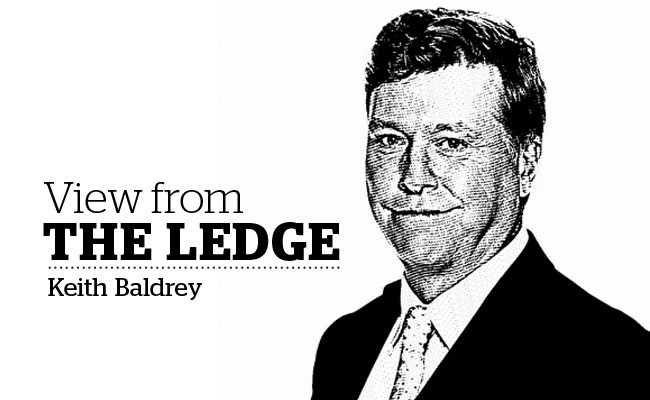The unexpected appointment of Peter Fassbender as the B.C. cabinet minister now responsible for TransLink has everyone guessing what he may have in store for the beleaguered transit authority.
Some attention has been focused on his prescribed solutions for TransLink’s many problems that he uttered when he was the mayor of Langley and the chairman or vice-chair of the mayor’s council that was part of TransLink’s governing body.
But I’d be surprised if Fassbender hangs onto all of his “old” views when he gets around to figuring out which direction to head in.
In fact, given that many of these old ideas — vehicle levies, road pricing and increased tolling, higher property taxes — have been kicked around and ultimately rejected (at least for now), one has to wonder whether Fassbender is being brought in to develop a much bigger game plan.
For example, will he be paving the path for the provincial government to retake overall responsibility for transit in Metro Vancouver, and elbow the local mayors out of the way?
Such a scenario cannot be discounted.
Aside from the mayors’ modest accomplishment of agreeing on a multi-billion dollar “wish list” of transit and transportation projects to put in front of the voters in order to win approval of a minor tax increase to pay for them, they can point to relatively few success stories working as a group.
Clearly, the current governance model of TransLink — with a government-appointed board calling the shots, with input from mayors — isn’t working and Fassbender has signaled he will change it.
But I detect no appetite within provincial government circles to give the mayors more responsibilities and powers when it comes to calling all the shots on transit.
The last time the mayors had ultimate control over things was when they were unable to reach agreement to build the Canada Line. As a result, the provincial government stepped in and arbitrarily ordered it built (the result has been the most successful rapid transit line in the region).
The reason the mayors could not reach agreement was in large part due to the fact that some of them realized pouring big dollars into such a huge project offered relatively few benefits for the people who actually voted them into office in the first place.
And the Canada Line experience was not unique. In the late 1990s, NDP Premier Glen Clark ordered the Millennium SkyTrain to be built, despite some mayors favoring a Coquitlam rapid transit line.
To be fair, it’s hard to expect mayors to make big-time regional transit decisions when they are not answerable to the voters of that region.
Should Vancouver Mayor Gregor Robertson to be expected, say, to willingly vote to make building rapid transit lines in Surrey a bigger priority than a SkyTrain subway line in his home city? No.
Many of the problems with the TransLink model can be traced back to Victoria. The provincial government’s decision to appoint a board to run things hasn’t worked out, and neither did letting the mayors run the show.
The implication is clear. If the provincial government keeps shackling what TransLink can and cannot do, perhaps it is time for it to reclaim responsibility and control of its operations.
Given the failed plebiscite and the mounting frustration among the mayors whose electorate want more and more services but resist attempts to pay for them, something major has to be done.
One can’t help but wonder whether blowing the whole model up entirely and returning power to the provincial cabinet isn’t one of the options to be explored.
Keith Baldrey is chief political reporter for Global BC. He can be reached via email at [email protected].
What are your thoughts? Send us an email by clicking here or post a comment below.



